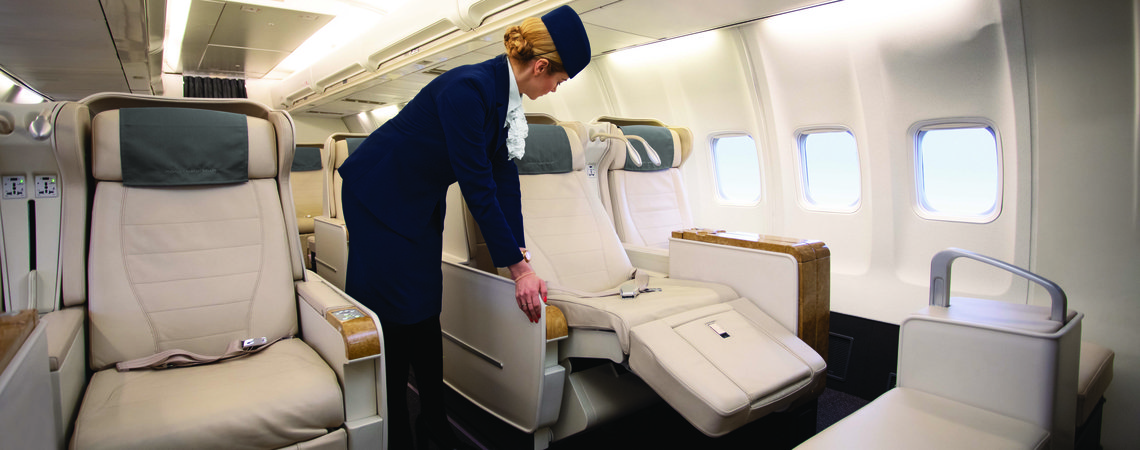Icelandair’s flight schedule for 2019 was the largest in the Company’s history, growing by 3% from 2018. The number of passengers in 2019 was just over 4.4 million, a 6% increase from the previous year and the load factor was 82%. One new destination, Dusseldorf, was added to the network and frequency of flights to various existing destinations in North America and Europe was increased as well.
With the focus on strengthening and improving the profitability of the network, flights to 5 destinations (Baltimore, Cleveland, Dallas, Halifax and Paris Orly) were discontinued during the year.
Due to changes in the competitive environment and to mitigate the risk resulting from the suspension of the MAX aircraft, Icelandair put more focus on the markets to and from Iceland instead of the transatlantic market via Iceland than in previous years. This resulted in 25% increase in the number of passengers to Iceland, or around 1.9 million passengers in total. The number of passengers from Iceland increased by 18% during the year while the number of via passengers decreased by 9% in line with this shift in focus.
In 2019, Icelandair’s fleet was comprised of 24 Boeing 757 aircraft, four Boeing 767 aircraft and six Boeing 737 MAX. However, the Boeing 737 MAX aircraft was suspended from March 2019 and were therefore not used in the Company’s route network for the main part of the year. In order to minimise the impact of the suspension on the route network, replacement aircraft were leased for the high season. With one Boeing 757, three Boeing 767 and one Airbus A319 added to the Company’s fleet during the peak summer season, Icelandair was able to operate a large portion of its route network and thereby minimise the impact on its passengers. The number of weekly departures from Keflavik International Airport was 377 during the summer’s high season. It should be noted that in 2019, hourly turnover improved largely year to year, by 12 percentage points overall.
Icelandair operates flights simulators for Boeing 757, Boeing 767 and Boeing 737 MAX aircraft at a training facility in Iceland. The facility is well utilised year round, for Icelandair and other airlines.
























